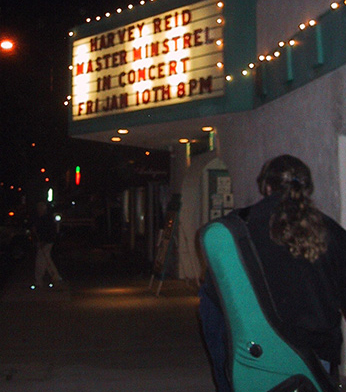 Troubadours and Politics
Troubadours and Politics
In the 1960s the idea of musicians being political went mainstream, and today it's still common to find entertainers involved in various social and political issues. How much should musicians think about how their art might be more or less political?
AUTHOR'S NOTE: I would love to learn more about the history of troubadours in cultures other than Western Europe, and I'd be greatly interested in what might be known about Eastern European, Asian, African, Middle Eastern and even Native American versions of this ancient art form. One of the most fascinating theories I have seen is that during the Crusades the Europeans learned about minstrelsy and first absorbed the ideas of romantic poetry, playing the lute, and rhyming lyrics from Arabic sources.
How much should we try to use our music to shape other people's attitudes or views on issues, or to publicly express our own? Or should we remain above the fray, and just play our music without taking sides on issues? I can't really say what any person should do, but it's interesting and instructive to look at things that have happened in the past.
Music obviously has some power– it can spark people who are discouraged, soothe people who are in difficulty, or perhaps even make warriors or victims of war think about love, family or beauty in ways they are unable to do so on their own. Music can help heal, inspire, motivate and uplift us, and it also can distract or divert us or be a tool of persuasion. It can unite us, it can create shared experiences. An important question emerges: should musicians devote their energy to actually trying to do these things, or are they by-products of the artistic process?
There is always the cold question of who really cares what musicians think about economic or social issues. Could we actually sing a song that might change someone's mind about a social issue? Does political music do much beyond making the participants feel better about beliefs they already have? Are movies or Facebook posts now the most powerful forces in culture, and has the role of music or the meaning of a song been greatly diminished? Did it ever have any real power to change anyone's mind, or have political musicians always been preaching to the choir?
As I ask myself all these questions and muse over the issues, the first thing I see is that even if the music itself has little effect on changing anyone's mind, there is no escaping the fact that pop stars are connected to high-level publicity machines, and their very existence is all about the fact that a lot of people know who they are and like them. This means that at least some musicians have the power to publicize and call attention to issues, either by speaking out or creating art with a message, or by showing up at rallies or protests. This might be the most valuable aspect of the ability of art to have an effect on politics, but it is a harder question of how much power lesser-known musicians have to publicize causes and further their views. A lot of us are lucky to get our picture in the paper once or twice a year, and now that everyone is a publicist it's unclear how to evaluate a lower-tier musician's efforts to support a political or social cause.
I'm curious to ask a much younger person who comes to mind for them as a socially or politically conscious modern musician. Kendrick Lamar made a strong statement at the Grammys last year, and Lady Gaga, Beyoncé and Alicia Keys are all modern superstars who have involved themselves in issues. Pete Seeger is an example who comes immediately to mind when I think about politics and music. Seeger believed deeply that music could be a social force, and appears to have lived in unwavering belief that songs can really matter, though the message he might have carried forward into society was perhaps just the message that musicians could associate themselves effectively with causes they believed in. Though he was active in national politics at a couple points in his life, his longest-term and possibly most effective work was done with his Clearwater project to try to educate the public about cleaning up the Hudson River. I'm not sure how to evaluate whether Pete's efforts actually cleaned the river, but his work there cemented his legacy as a model for musicians who could also be activists. It might even be significant that his work with the Clearwater project was primarily local.
It's tempting to try to find out if Seeger ever got philosophical and self-reflective enough to reveal in an interview or essay whether he felt that his political stance on music did much to change the world, other than to inspire other musicians to try to change the world through their music. Pete felt strongly that when he got an opportunity to sing for a large audience on TV, for example, that he should sing a song with a social or political message. He seems to have felt that music's highest calling was to transmit a message, not just to amuse, impress or distract.
Harriet Beecher Stowe's 1852 fictional bestseller Uncle Tom's Cabin might have done as much as any political acts or speeches to encourage the American people in the North to fight the Civil War to end slavery. Billie Holiday's song "Strange Fruit" and "We Shall Overcome" were anthems of the civil rights struggle of African-Americans, though it's unmeasurable what impact the songs themselves had in affecting public opinion, or of changing anyone's view about racial issues. If you have ever been in a civil rights rally when people sang We Shall Overcome you can't say that such music has no power.
In Western Europe
From what I can tell from some research, the concept of a European troubadour emerged in the aftermath of the First Crusade in the 1100s, and largely ended in Great Britain, Germany and France around the late 1500s with the so-called "poor laws" and other statutes that caused wandering musicians to be arrested or exiled rather than celebrated. Early so-called Troubadours were from wealthy families, and the high-water mark of power and respectability of lute-toting, singing & rhyming Europeans seems to have been about 900 years ago, with Henry II and Queen Eleanor of Aquitaine and their son King Richard I, "The Lion-Hearted" who divided his affections between warfare, romance, poetry and song.
Throughout history, musicians and entertainers have sometimes enjoyed special status with those in political power. Monarchs and powerful nobles reportedly had favorite musicians or acrobats who were sometimes in great demand among the houses of the wealthy and powerful, and presumably this might mean that they enjoyed privileges and had political influence beyond that of anything we have seen in almost 1000 years.
I haven't heard of any European or American heads of state in recent centuries who kept songwriters, musicians, jugglers, fire-eaters or poets in their inner circle, and it doesn't seem likely to start happening again in the near future. It actually sounds so unlikely as to be comical to suggest. (Katy Perry associated herself strongly with Hillary Clinton in the 2016 election, and might have gotten as close as any musician in modern times to a sitting President.) Quite a number of entertainers endorsed and spent time with Barack Obama during his campaigns and during his presidency, though I have not heard anything to indicate that they were being asked for their political opinions or were currying favor or lobbying the President. He was quite a music fan, and enjoyed inviting them to perform.
Beginning in the 1570s during the reign of Henry VIII, traveling musicians began to be tossed in jail rather than celebrated in English society, especially after the passing of the Vagabond Act and some other decrees that essentially outlawed the professional of minstrelsy. Unlicensed musicians or those not associated with “an honourable person of great degree” were "to be grievously whipped and burned through the gristle of the right ear with a hot iron of the compass of an inch about." That's what the law said, though Queen Elizabeth I in 1598 lessened some of the punishments, while still essentially outlawing the profession.
In the distant past, warring monarchs brought musicians to war with them, and the history of bagpipes, drums and even fiddling is intertwined with their use in wartime for marching and morale. Musicians were sometimes sent on spying missions, since they had the ability to infiltrate better than other people. Thomas More's song "The Minstrel Boy" is the story of an Irish harper who was captured in battle, and refused to play music in prison. More wrote the words to the tune of The Moreen to honor some musician friends who died in the Irish Rebellion of 1798, and it is not a song about a particular person or event. I have an old edition of his poetry that says that More learned the melody from a "minstrel named Stevenson."
In addition to musicians playing a role in conflicts, there has also been a long tradition in minstrelsy and troubadouring of not taking sides in politics or war. There is possibly a “higher calling” in rising above it all and trying to play music for both sides. When the armies would mass before a battle, enterprising minstrels would play at the campfires of one army, then run across to the other side and play for the other soldiers, then get out of the way before the battle started. No doubt many an itinerant musician found themselves inadvertently in the middle of a regional conflict, and presumably the musicians who were part of a community might be more likely to be on one side or the other.
Some kings & queens in older times reportedly were sometimes very mistrustful of musicians out of suspicion that they were colluding or communicating with the enemy. There is a great story that seems to be quite well-documented from the year 878 when the Saxon King Alfred himself posed as a minstrel and entertained the Danish army with his harp and songs, which allowed him to gain information, regroup his forces and conquer the Danes. He then confronted the Danish King Guthrum after his capture after previously entertaining him, which would likely have been voted one of the all-time great moments in troubadour history.
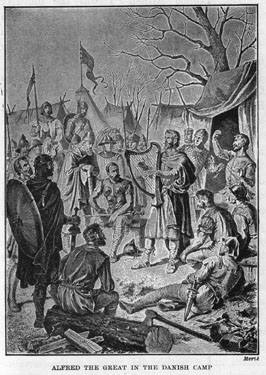
King Edward I was the ruler who "united" Great Britain, which meant that he brutally conquered Scotland, Ireland and Wales. The Welsh held out the longest, and in his frustration to subjugate their rebellious spirit and complete his domination of them, he reportedly ordered 500 Welsh bards burned at the stake in 1277. He apparently sensed that they were a vital part of the rebellion, though some accounts indicate that he was angered by their refusal to sing his praises. King Edward's treatment of the Welsh musicians is the most poignant example I can find anywhere in the of the role of musicians in politics and large-scale conflict in the long history of troubadouring, and it's a shocking story that I wish were better-known. I can imagine a modern politician being angry with an entertainer or comedian, but publicly executing hundreds of them as a tactic for conquering a people seems quite exceptional.
In South America
I know very little about South American music, politics or activism, but I should take a minute and mention the name of Victor Jara, a Chilean musician and activist who was perceived to be such a threat to the Chilean government that he was arrested, tortured and killed in 1973 following the overthrow of President Allende. Jara could be the most prominent modern example of a musician whose political power was respected and feared at such a high level.
In America
I can't find many equally dramatic or noteworthy events in American history that involved musicians we might view as American versions of the old troubadours being directly involved in battles or large political happenings or even circulating among the powerful.
In the Revolutionary War, the song Yankee Doodle became a symbol of defiance against the British crown, but it doesn't seem to be associated with a particular musician or the troubadour community, if there even was one at that time. Because so much of the colonial government was put together by Puritans and other fundamentalist Christians whose church music in New England consisted almost entirely of the Psalms of David being sung a capella to a handful of common melodies, there might not have been very many fiddlers or ballad singers that were part of colonial society at all. The only places where there might have been the kinds of musicians we think of as "American troubadours" may have been on the frontier, far from the centers of political or economic power.
When Francis Scott Key wrote the lyrics to our national anthem in 1814 he was an amateur poet, and a lawyer by profession, certainly not someone who might fit our image of a 19th century troubadour. He wrote his new words to the British drinking song "To Anacreon in Heaven" that he had previously written other lyrics to for another purpose, and titled his new song "Defence of Fort M’Henry."
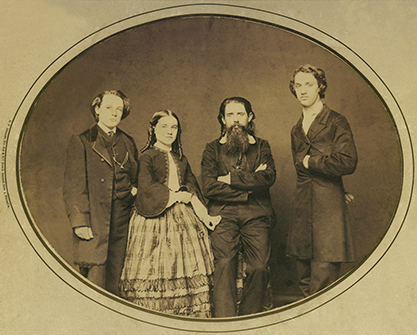
Beginning in the early 1840s, the Hutchinson Family of Milford, New Hampshire (above) became one of the most popular musical groups of their time, and they were deeply involved in moral and political issues of the day that followed on the heels of the religious revival known as the "Great Awakening." The Hutchinsons offer possibly the most significant example of American musicians who involved themselves almost entirely in activism and utopianism. Their biographers are divided on whether they were genuine moralists who used their musical fame to further their agendas of reform, or whether they just rode the populist reform wave to gain listeners and fame. A great deal of the personal information we have about them came from their own journals and autobiographies, so they are not unbiased sources. There were a number of incarnations of the group in later years with children, spouses and other siblings entering in, but the core was 3 brothers and a sister who became committed to anti-slavery, temperance and women's suffrage. They wrote a huge number of topical songs, performed at countless rallies and meetings, and among their fans and friends was an impressive list of reformist leaders of the day, including Frederick Douglass, Henry Wadsworth Longfellow, John Greenleaf Whittier, William Lloyd Garrison, Abraham Lincoln, Charles Sumner, Daniel Webster, Lucretia Mott, Elizabeth Cady Stanton, Harriet Beecher Stowe and many others. Less popular than the Hutchinsons were The Alleghanians, who formed in 1846 as a copycat act to the Hutchinsons, and they were also quite involved politically. The Continental Vocalists were also active at that time, though they were mostly flag-waving and patriotic, and did not advocate for social change or justice.
Dan Emmett was a fiddler and drummer from Ohio, a northern state, whose song "Dixie" became the anthem of the South during the civil war. Emmett was an important musician of his day, being a founding member of the Virginia Minstrels, the first American super-group, and possibly the first popular band to combine fiddle and banjo. They played regularly in New York in the 1850s, and Emmett wrote the song in New York when he was in the Bryant's Minstrels. It was first performed in 1859 and became a big hit instantly. (Several other sources are now credited as being the origin of the song.) Oddly, Emmett wrote the fife and drum manual for the Union army after his song became the anthem of the Confederates, but there are no heroic stories I can find about him involving himself in issues or showing leadership.
As far as I can tell, in capitalist America, every time there is a war, the music community cranks out a lot of patriotic and pro-war songs, and some of them sell well and become anthems, and most end up on the dust-heap of history. There are a lot of Civil War and World War I songs that were reputedly either popular with the troops themselves or with worried or grieving families back home.
The history of the more rural states in the 1800s reveals a number of instances of popular local musicians successfully running for office. Fiddlin' Bob Taylor was a popular governor of Tennessee in the late 1800s. There were a number of popular fiddlers who also ran for office in that era, and singer-songwriter Jimmie Davis, the author (or purchaser) of "You Are My Sunshine" and many other popular songs, became a well-liked governor of Louisiana for many years beginning in 1944. Senator Robert Byrd of West Virginia, the longest-serving senator in history and a distinguished member of Congress for decades, was a skilled fiddler who even made an album in the 1970s.
Periodically well-known entertainers run for office, though their numbers have not been large, and they seem to use their celebrity as a way to win votes more than they use their entertainment skills as part of their political activities. Actress Shirley Temple became a career diplomat, and singer Sonny Bono was a member of Congress for 4 years. Comedian Al Franken became a senator from Minnesota in 2009, and professional wrestler (yes, wrestlers are a sort of troubadour entertainer also) Jesse Ventura was a rather popular 1-term governor of Minnesota in 1998.
I am not aware of any musicians in communities where I have lived who were involved in the processes of local government, and in my observation the role of musicians in government in general has always been focused entirely on publicity and issues rather than the actual day-to-day work of public service and governing.
Politics and Folk Music
Political music in modern America really seems to have been kick-started with the so-called "Wobblies," an early labor movement (IWW, Industrial Workers of the World) founded in 1905. Joe Hill was a Swedish immigrant (born Joel Hägglund) who became involved as a union member, and subsequently as a cartoonist, organizer and songwriter for the labor movement. His high-profile execution in 1915 for a crime that many think he was framed for set the stage for the ongoing century-long relationship between folk music and the labor movement. The union movement apparently was greatly associated with songs in its early years, and the bulk of them were new words set to familiar folk melodies that could be deployed at rallies and meetings.
The Great Depression crushed the fledgling record business, but was a huge boon to the movie and broadcast industries. Vast numbers of people were out of work with little money, and needed entertainment. The stock market crash and the Depression gave birth to the idea that capitalism had failed, and the early union movement found a lot of sympathy you don't see today, for example.
Woody Guthrie, the fiddling, guitar & harmonica playing and ballad-singing Okie, came of age during the Dust Bowl and Great Depression, and jumped into writing union songs with both feet and performing for labor rallies when he migrated to urban culture. It is likely that this direction was sparked by his friendship with Pete Seeger, who seems to have booked the gigs and done all the PR and organizing. Almost every song Woody wrote was just new words to an existing melody, including "This Land Is Your Land" which originated with the Carter Family song "When the World's On Fire." After the start of World War II Woody also wrote a number of anti-Hitler and pro-American, pro-war songs that have not been as well-known as his Dust Bowl songs.
Guthrie didn't have a music career like we now envision them; his recordings were not commercial recordings and didn't sell during his lifetime, but he has posthumously inherited the legacy of being the guiding light for politically-minded folk artists. Instead of playing coffeehouses, concerts or theaters, many of the performances he did with his music pals Lee Hays, Fred Hellerman, Pete Seeger and Ronnie Gilbert were for union gatherings or left-wing political rallies. The "New York Folk Gang" of the 1940s, loosely called The Almanac Singers, was a melting pot of folk music plasma that germinated some important cultural seeds, and spawned the acoustic & roots music scene was we know it today. In the days before the internet you had to show up, and New York attracted people from all over the country, including Tex Ritter, Sonny Terry, Theodore Bikel, Josh White, Oscar Brand as well as Woody Guthrie and Leadbelly. Chicago, San Francisco, Los Angeles and Nashville were also hubs for music and musicians, but for the world of the modern troubadour, what happened in New York seems to have been by far the most important.
The shepherds and manipulators of the music scene are part of the story also, and the record labels, publishers, managers and booking agents had a huge presence in New York also. The influence of John & Alan Lomax, John Hammond Sr., Charles Seeger, and later Albert Grossman were a vital part of the genesis of Folk Boom and the music that grew out of it. The first-generation artists never sold many tickets or records, and most of the "legends" we think of today were barely-known in their heyday. However, much of what they did and what they were serve as partly mythical, eternally-respected role models and godfathers for folksingers in later decades, including most topical songwriters and activists to this day. They are seen as people who chose to use their music in the service of something they felt was greater than themselves, and the echoes of their legacy in the world of modern troubadours are profound.
The labor movement struggled very hard to champion the rights of workers against the wealthy capitalists. In the buildup to World War II the folksingers first got on the wrong side of the FBI for advocating pacifism and draft resistance after the first peacetime draft was instituted in 1940, so they switched sides and supported the war effort. Seeger sang an uncharacteristic song in 1941 "Dear Mr. President" where he sang: "Mr. President, We got this one big job to do / That's lick Mr. Hitler and when we're through...So what I want is you to give me a gun / So we can hurry up and get the job done." (Seeger did spend 3 1/2 years in the Army.) After the war, Seeger & Guthrie and their union-loving singing friends soon ran smack into the new idea that communism was a bad thing. Communism quickly turned into something that was no longer seen as supporting oppressed workers, but a menace and an enemy of America, and the folksingers who had been deeply involved in unions had to scramble to get out of the way of the Red Menace juggernaut.
It is hard now to believe what happened in the 1950s when Pete Seeger and other folk musicians and Hollywood figures were hauled before the House Committee on Unamerican Activities and accused of subverting the government by supporting Communism. Folk singers who obviously had felt great and understandable empathy for downtrodden, underpaid working-class people and felt good about themselves for singing at rallies in support of worker rights and laws for better working conditions ended up in some very deep political water.
I was in diapers that August day in 1955 when Pete stared down the members of Congress and stood his ground, taking his role as a musician very seriously, and earning himself a 10-year prison sentence for contempt of Congress that wasn't rescinded until 1962. Pete always believed that music had real power, and obviously some members of Congress were somewhat fearful of that power and of his beliefs. It seems unimaginable in today's world that a singing banjo player would pose a credible threat to the nation. The transcript of Seeger's congressional testimony that day is jaw-dropping, and can be found online. (If they take this link down I can send you a text file of it.)
Pete Seeger was also cut off by censors during the Smothers Brothers popular TV show in 1967 for singing "Waist Deep in the Big Muddy," a song that was seen as critical of U.S. government policy.
Music & the Vietnam War
Many contemporary musicians choose to be overtly political in their songs and their stage appearances, which seems to harken back to the late 60s and early 70s when the unpopularity of the Vietnam War led to a lot of "protest songs" and "anti-war" music that I remember well from my childhood in the 60s. During the Vietnam war, the flag-waving and the flag-burning among musicians on both sides of the issue reached a high-water mark for my own lifetime. Country Joe and the Fish sang their anti-war anthem "1-2-3-4, what are we fighting for" and Barry Sadler countered with the Ballad of the Green Berets, and the polarization of hippies vs. rednecks was even deeper than Clinton voters vs. Trump voters is today. In country music, some artists like Lee Greenwood and Toby Keith have chosen to champion the patriotic conservative side, while pop artists have tended to lean toward liberal causes.
The list of hallowed names of activist musicians such as John Lennon, Paul Robeson, Neil Young, Billy Bragg, Guy Carawan, Bob Dylan, Joan Baez, Woody Guthrie, Bono, Bruce Springsteen (I'm sure I have forgotten some other important ones here...) is a testimony to the fact that some musicians have succeeded at preserving their images as respected artists while espousing social or political activism through their music. At a glance, musical activism is normal and appropriate, though no doubt there are many who would sneer at all the artists in that list.
Your Music & Politics
Performers obviously choose to be political because they believe it is the right thing for them to do, and their position is clearly that they believe that it will be valuable and meaningful for them to use their music and the exposure it might create to try to further causes they believe in. These days it is not uncommon for a political candidate to use a popular song for their campaign rallies, or to bond with an entertainer who is sympathetic to their campaign. There have also been a number of high-profile artists who have requested that politicians stop using their songs for their campaigns.
The musicians who choose not to be political don’t get talked about as much, to the point where you might not realize they have taken a position of neutrality. This sword is double-edged, but only one edge is really visible. Every performer should think long and hard about whether they want to publicly mingle their music with their politics or beliefs. (This same thought process and most of the comments I make here apply to whether you choose to involve your personal faith overtly with your music.)
Unless you are writing political songs, or singing them at your concerts, it’s worth thinking about what effect it might have on your “image” if you participate in a political event as a musician. Event organizers love to invite musicians, and musicians are often eager to accept invitations that increase their exposure and gain them new fans. They also stand to gain from being in the media, since non-profit events generally get favorable press coverage. It can be valuable if people see your picture or hear your name, even if most of them don't even show up at the event and hear any music.
By appearing at a political event, you are basically making a public statement that you are aligned with a particular political group. If it is certain type of “conservative” event, you will essentially announce that you are a Republican, and if it is a “liberal” cause, you will be seen as a Democrat. In this hyper-partisan age, can you afford to alienate potential listeners (roughly 50% of the population) of the opposite party when your mission as a musician may not really be directly related to politics? Do you really want to perform for only Democrats or Republicans? Do you want your listeners to start thinking things like “I was liking this person’s music but now that I see that they do not share my political views I’m losing interest.”
When you perform at a peace rally, any anti-war music will likely only reach the ears of anti-war audience, and your best chance to move someone and change their feelings about war might be to sing to the security people at the event, or perhaps a passer-by. Even the sound people tend to wear their political views on their sleeves at political concerts, and preaching to the converted might be all you get to do, though it can really feel good to do that.
You might be able to do more “conversion” if you don’t align yourself with one side of a polarized world, and if you build an audience of both Democrats and Republicans who like your music, you might have a better chance of “planting” your viewpoint into a receptive listener, if that is something you wish to do. You might be too obvious and get caught, and possibly reveal yourself to be a Republican to a Democrat listener or vice versa. I like to sing centuries-old anti-war songs when I know there are modern soldiers or Republicans listening, and I leave my own views aside, though presumably it is assumed that any guitar-playing musician who needs a haircut is probably not pro-war.
And here is a very surprising extra edge to the sword, or twist to the tale: If you are a self-employed musician, and you do accept money for playing at an anti-war event, for example, an odd thing can happen. If you get paid $500 to perform, that actually adds about $150 to your income tax liability, since self-employed people have to pay withholding taxes. Since more than half the federal budget is military, you might think about the fact that you may have contributed $80 or more to the military budget by accepting money to do the anti-war gig.
This is another posting where I'm trying to raise issues, questions and awareness in the world of modern troubadours... You deserve a reward or a door prize for making it to the end. Please check back to look for new posts as I get them done. I plan to cover a wide range of issues and topics. I don't have a way for you to comment here, but I welcome your emails with your reactions. Feel free to cheer me on, or to disagree...
Chordally yours,
HARVEY REID
©2017
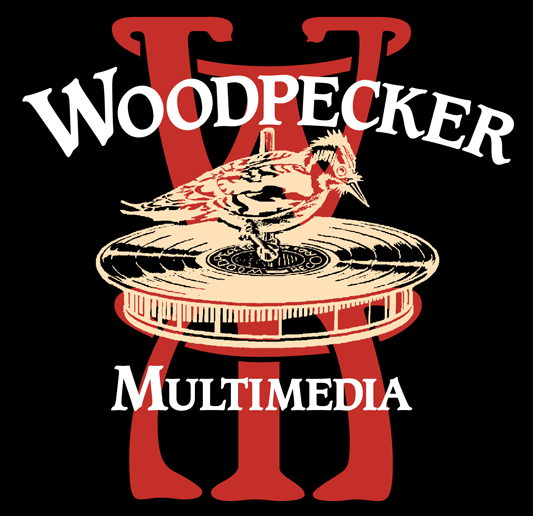 H
H 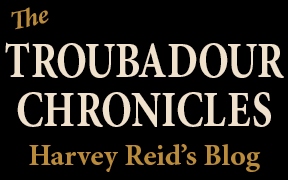
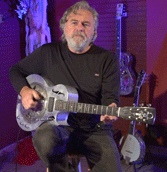

 H
H 

